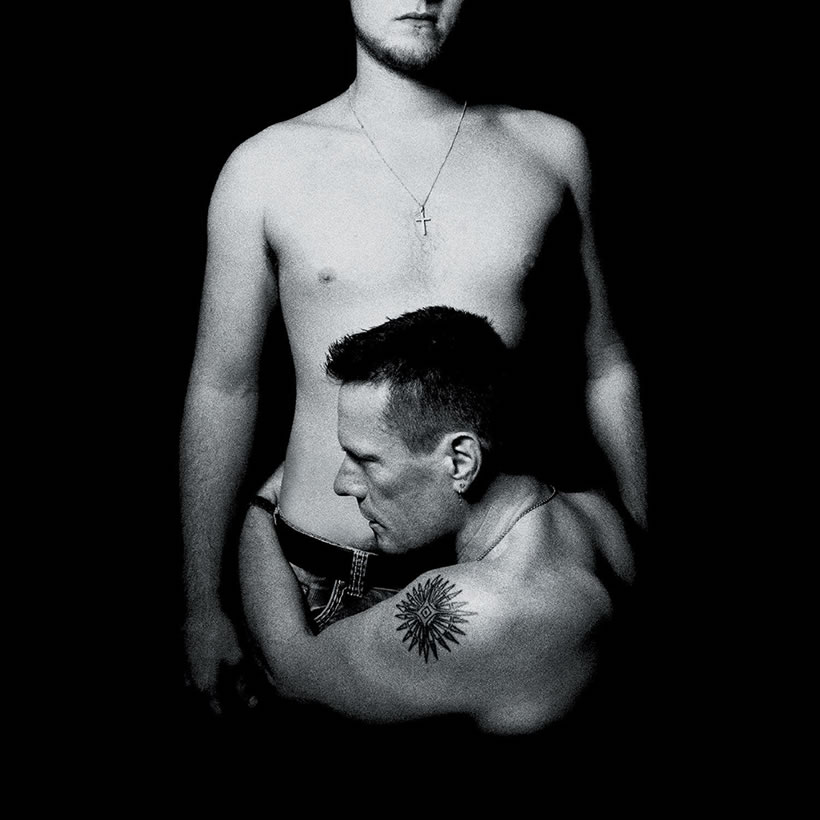In 2014, the epic tale of U2’s recording odyssey through 13 studio albums and 35 years arrived at the Songs of Innocence album, and, as ever, the only direction was forward.
Released on September 9, the record found the four lifetime friends in unfailingly dynamic form. The new songs, some of the most autobiographical of their lives, were brimming over with energy and inventiveness.
After the mists cleared from the endless attention over the album’s groundbreaking digital release to more than 500 million iTunes siubscribers, what emerged was the much more important element: the sheer vitality of its content. That was underlined by the unprecedented demand for the iNNOCENCE + eXPERIENCE Tour 2015.
Two and a half months of North American shows culminated in an awe-inspiring eight dates at Madison Square Garden in New York, in late July of that year. The tour relocated to Europe for a sold out itinerary of more than two months that included six nights at London’s 02 Arena.
While other bands trade entirely on former glories, the lifeblood running through U2’s veins is the need to stay new and relevant, to themselves as well as their audience. That was central to both the creation and execution of Songs of Innocence, as Edge explained when he spoke to Rolling Stone.
He described what the band had learned about the digital age, after the free release of their new album to half a billion people, in a month-long digital exclusive via iTunes. “We’re in the dawn of it,” he said. “The thing it’s easy to forget when you live in modern times is that they’re modern for about another 30 seconds, more so than ever.
“In a few years we’ll look back on this time like we look back on VCRs and rotary phones. When the radio arrived, everyone thought that was the end of sheet music. I think music has become devalued and disposable in the commercial world – but not to music lovers or the people who make it, and not all big tech either. Apple – and U2 – fight hard for artists to be paid.
“In the future, technology has to be a better servant of music, and not its slave master. We can take advantage of the benefits of technology, and we do, but it’s also beholden on those of us who have been so well rewarded by music to figure out a way to preserve the ability for artists to create and thrive.”
There may have been a five-year gap between 2009’s No Line On The Horizon and Songs of Innocence, but the spectacular U2 360° Tour didn’t reach the last of its 110 shows until July 2011. The new record’s evolution took in a variety of studios, with production credits going to Danger Mouse, Paul Epworth, Ryan Tedder, Declan Gaffney, and Flood.
There were no fewer than seven settings for this new experience, with sessions at Electric Lady Studios, The Church, Shangri-La, Strathmore House, Pull Studios, Assault and Battery, and The Woodshed. When the album emerged, reviewers heard a rich synthesis of all of the band’s varied influences from different times in their career, made whole by the experiences gained across four decades of invention.
“Songs of Innocence reconnects U2 with the strident, searching, wide awake band of their nascency,” wrote Mojo magazine’s Tom Doyle, “reminding not only us but themselves of their against-the-odds beginnings. The result is their best and most thematically complete album since Achtung Baby. By turning towards their past, U2 have found their way back to the future.”
Those themes of looking homeward, and of the 1970s Dublin that the group grew up in, were evident from the robust, uncompromising and infectious opener, “The Miracle (of Joey Ramone).” It was a tip of the hat to the lead singer of the Ramones, one of the very reasons U2 chose their career path in the first place. “I was young, not dumb, just wishing to be blinded by you,” sang Bono in tribute. “Brand new, and we were pilgrims on our way.”
Elsewhere, there was further acknowledgement of another guiding light for the young U2, The Clash, in “This Is Where You Can Reach Me Now,” dedicated to Joe Strummer. ‘Every Breaking Wave’ rolled to the shore with an assured restraint in the spirit of “With Or Without You”; “Volcano” bubbled like lava.
“Iris (Hold Me Close)” was yearningly anthemic, named for and inspired by Bono’s late mother, who died when was he was only 14. Swedish pacesetter Lykke Li contributed vocals to “The Troubles,” while “Cedarwood Road” typified that cohesion that occurs when every individual on a record is doing something great. Again, its reference points were real and personal, with a lyric about the cherry blossom tree in the garden of the Hewsons’ neighbours, when Bono was growing up.
“It’s us trying to figure out why we wanted to be in a band in the first place,” Bono told the Irish Times. “The relationships around the band and our first journeys – geographically, spiritually and sexually. It was tough and it took years. Put it this way: a lot of sh*t got dragged up.”
This series of album essays has travelled a million miles around the world and back, on a road that continues to stretch ahead enticingly. The Songs of Innocence track ‘Song For Someone’ contains the lyric: “There is a light, don’t let it go out.” U2 never have, and never will.
Listen to Songs Of Innocence on Apple Music and Spotify.



